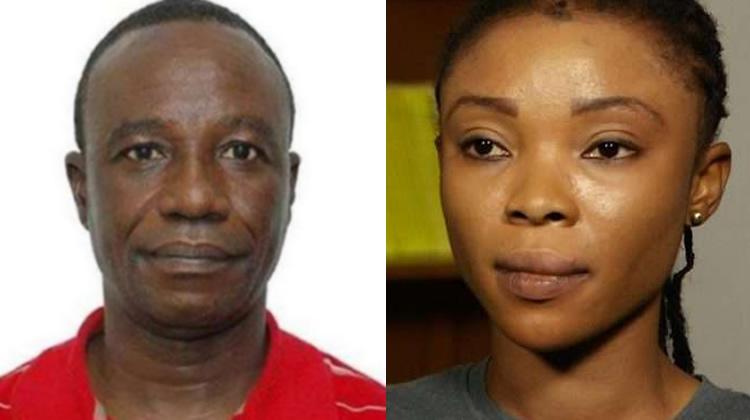The case of Professor Richard Akindele, the sex-for-mark sacked lecturer of Obafemi Awolowo University (OAU), Ile-Ife is one of the celebrated cases of the year, as it attracted attentions. He met his waterloo when he insisted to have sex with one of his students, Monica Osagie for five times before upgrading her scores. His action eventually earned him six years in prison for four count charges to run concurrently for two years. SOLA JACOB and SIKIRU OBARAYESE write about his travail.
Professorship is the highest teaching position at any university and to be qualified as a professor is no doubt, not a tea party. However, for someone who has attained such position to crash, just like the case of the former lecturer of the Obafemi Awolowo University (OAU), Ile-Ife, Professor Richard Akindele over sex-for-mark scandal is not only unfortunate, but also shameful and disastrous.
Akindele’s 27 years of service in OAU, out of which 10 years was spent as a professor went down the drain, as he met his waterloo.
April 29 was the day his travail started when a telephone conversation during which Akindele demanded to have sex five times with Monica Osagie, a Postgraduate Student on the Master of Business Administration Regular programme, before passing her, began trending on social media.
Osagie had called the Professor to inquire about his earlier demand for sex to pass her in a course that she supposedly failed, saying she was calling to confirm whether he was serious about having sex with her.
The lecturer in turn told the student that she would repeat the exam in the next academic session since she had refused to “take the opportunity” he offered her to have sex with him.
He responded: “I know what I meant. If you don’t trust me forget about it. If I wouldn’t do it, why should I give you audience in the first place. If I am not interested in doing it, I won’t give you audience. The other person has come and I told her straight away because there is nothing I can do to bail that person out and her mark is even better than your own. The person scored 39 while your own is 33.”
The lecturer subsequently asked her why she told him that she was on her period the day they met and he demanded sex and she responded, “I was truly seeing my period Professor Akindele”, but the man told her to stop mentioning his name.
After a long conversation, Monica asked Akindele about the plan for the arrangement for her to have the sex so that she could avoid repeating the course, and he told her that they would have the first sex the next day and on four subsequent occasions.
“Is it not five we agreed? Our agreement is five,” he said, “Is it B that you want to give me or C? Why would it be five times you will knack me?”, she queried.
When the main character of the scene, Professor Akindele was having the conversation, he never knew that he was already in a trap until the audio was released and it began to generate furore.
After careful investigation of the matter, the management of the OAU on April 19 announced the suspension of Akindele, saying the panel investigating the matter had established that he was the lecturer in the audio.
According to the statement announcing the suspension, “The Vice-Chancellor of Obafemi Awolowo University, Ile-Ife, has received and considered the interim report of the Committee set up to investigate the allegation of sexual harassment revealed in a recent audio recording”
“In the interim report submitted to the Vice Chancellor, Professor Eyitope Ogunbodede, Professor Richard I. Akindele, of the Department of Management and Accounting, is now established to be the lecturer in the controversial ‘marks for sex’ audio recording. The female voice has also been identified as that of Miss Monica Osetobe OSAGIE, a Postgraduate Student on the Master of Business Administration Regular programme.
“Although the Investigative Committee had invited both Professor Richard I. Akindele and Miss Osagie, only Professor Akindele had appeared before the Committee, while Miss Osagie is yet to appear or make any representation. The report indicated that many other witnesses appeared before the Committee and gave useful evidence. The University is making efforts to ensure that Miss Osagie appears before the committee so that it can hear her own side of the case and promptly submit its final report.
“Having regard to the gravity of the offence for which Professor Richard I. Akindele is found to be prima facie liable, the Vice-Chancellor, in line with the Code of Conduct for the University Community and acting under all the laws and regulations of the University enabling him in that regard, has directed that Professor Richard I. Akindele be suspended forthwith from the University, pending the final determination of the disciplinary case against him.
On April 24 Monica Osagie appeared before the OAU panel and told the university committee she passed but Akindele claimed otherwise to bait her into having sex with him.
Eventually, on June 20, the OAU management announced the sacking of the professor.
When many had thought that the end had come to the whole scenario after the sack of the former lecturer, the Independent Corrupt Practices and Other Related Offence Commission (ICPC) came into the picture, arrested the randy lecturer and arraigned him before a Federal High Court in Osogbo.
He was charged on a four counts, bothering on alteration of age and demand for sex to pass his student.
The charge reads: “That on the 16th day of September, 2017 or thereabouts, you corruptly asked for sexual benefits for yourself from one Monica Osagie for a favour that would be thereafter shown to her by upgrading her academic record from fail to pass, thereby committing an offence contrary to and punishable under Section 8(1)(a) and 2 of the Corrupt Practices and Other Related Offences Commission Act 2000.
“That you solicited sexual benefits from the victim on the 16th of September, 2017 or thereabouts for a favour to be given to you, the act contrary to and punishable under Section 18 (b) of the ICPC Act.
“That you deliberately concealed evidence, with the intent to remove parts of the conversation between you and the victim, contrary to Section 15 (1) and (2) of the ICPC Act.
“That you falsified your age by saying under interrogation that you were born on April 19, 1961 while in your personal file retrieved from OAU, you claimed you were born on April 19, 1959, an act contrary to and punishable under Section 25 of the ICPC Act, 2000.”
Though, he pleaded not guilty during his first time of arraignment, he was ordered to be remanded in prison custody, pending a formal application to be brought.
On November 27, his former bail application was heard and the court again adjourned till December 17 to allow the prosecution brings evidence against Akindele to justify why he should not be granted bail.
On December 17 however, the matter took a new turn, as the randy lecturer changed his plea from non-guilty to guilty on the ground that the two parties have decided to use Plea Bargain to settle the matter. This did not go well with the Presiding Judge Maureen Onyetenu who rejected the arrangement between counsels of the two parties and sent him to prison.
The case of Akindele and Osagie is only an eye opener to corruption that has bedeviled the higher citadel of learning in Nigeria. Though, happening on daily basis, victims are only waiting for who will bury the cat and hurray! Monica’s case has opened the gate that all victims may speak-out.
The role played by a non-governmental organisation, Women Advocates Research and Documentation Centre (WARDC) in standing by the victim to fight the course can never be overemphasized. The aim of the organization is to seek and promote women and girl child right via equal opportunity and access to good education, health as well as zero tolerance for sexual harassment and domestic violence.
In a chat with the Director of the Centre, Dr. Mrs Abiola Akiode, she said such cases are some of the factors that militate against girls child education in the southern part of the country.
She said, sexual harassment in particular thrives because victims fear to speak out because of stigmatization, the believe that the issues would not be prosecuted at the law courts due to the lapses in investigation by the police or in most cases when the defendant in the matter is highly placed in the society.
“Sometimes, the delay in prosecution always makes the victim to withdraw the matter from court especially, the indigents who have no one to prosecute their matters. This is the essence of and one of the cardinal aims of WARDC.











